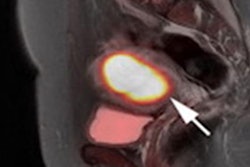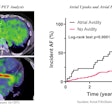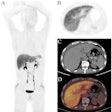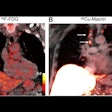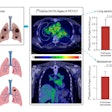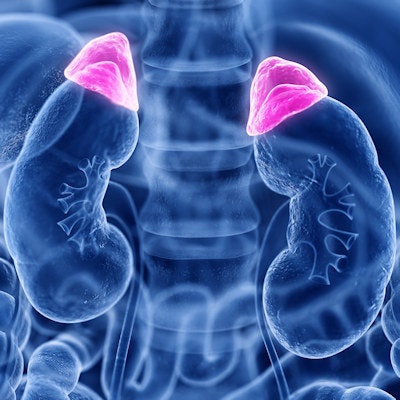
PET scans with an F-18 FDG radiotracer may predict overall survival in patients with adrenocortical carcinoma, according to a study published September 8 in the American Journal of Surgery.
A group of surgeons from Harvard University in Boston analyzed uptake of radiotracer by tumors on initial FDG-PET scans in patients diagnosed with adrenocortical carcinoma. They found higher maximum standardized uptake values (SUVmax) was associated with significantly worse survival rates.
"This is significant because [adrenocortical carcinoma], while in general having a poor prognosis, has a significant degree of heterogeneity in outcome and relatively few prognostic indicators," wrote corresponding author Dr. Matthew Nehs, an assistant professor of surgery at Harvard University.
Adrenocortical carcinoma (ACC) is an aggressive type of cancer with poor outcomes. Surgery, and in some cases radiotherapy, is the main treatment. Understanding how long patients may survive after diagnosis based on quantitative measures provides key information for treatment planning.
In the current study, the authors analyzed FDG-PET scans of 26 patients with ACC treated at the Dana-Farber Cancer Institute or Brigham and Women's Hospital in Boston between 2000 and 2019. SUVmax values were either abstracted from radiology reports, if available and previously documented, or were determined by radiologists who reviewed the imaging.
Twenty patients underwent surgical resection (76.9%), five patients did not undergo surgical resection (19.2%), and one patient had uncertain surgical status (3.8%). The median follow-up per subject, defined as the median number of days of follow-up until death or censor event (the date there ceased to be further clinical documentation), was 1,204 days (range: 12-8,414 days).
According to the findings, the median SUVmax was 8.4 (range, 0.5-31.9) for the entire cohort. The groups were split into high (≥ 8.4) and low (< 8.4) SUVmax cohorts, with a subsequent comparison demonstrating a statistically significant difference in overall survival, the researchers wrote.
The high SUVmax cohort demonstrated lower survival (median 479 days or 15.7 months) compared to the low group (median 1,490 days or 48.6 months, p = 0.01).
| Outcomes of adrenocortical carcinoma patients based on SUVmax levels | ||
| High SUVmax | Low SUVmax | |
| Subjects | 12 | 14 |
| Events | 9 | 4 |
| Censored | 3 | 10 |
| Mean overall survival (days) | 479 | 1,490 |
"ACC patients with high SUVmax experience a shorter survival and poorer prognosis than their low SUVmax counterparts. This initial exploratory study suggests a link between SUV avidity and prognosis, and that SUV avidity may be a surrogate for more aggressive tumor biology," the authors wrote.
The authors noted that FDG-PET was performed on patients at their hospitals at the discretion of the clinical care team and that guidelines have not and do not exist either at their institutions or nationally for the inclusion of FDG-PET in the care of ACC patients.
With additional research, that could change, they suggested.
"Further exploration is warranted with prospective studies on the utility of quantitative parameters from FDG-PET/CT for patients with known or suspected ACC," Nehs and colleagues concluded.






